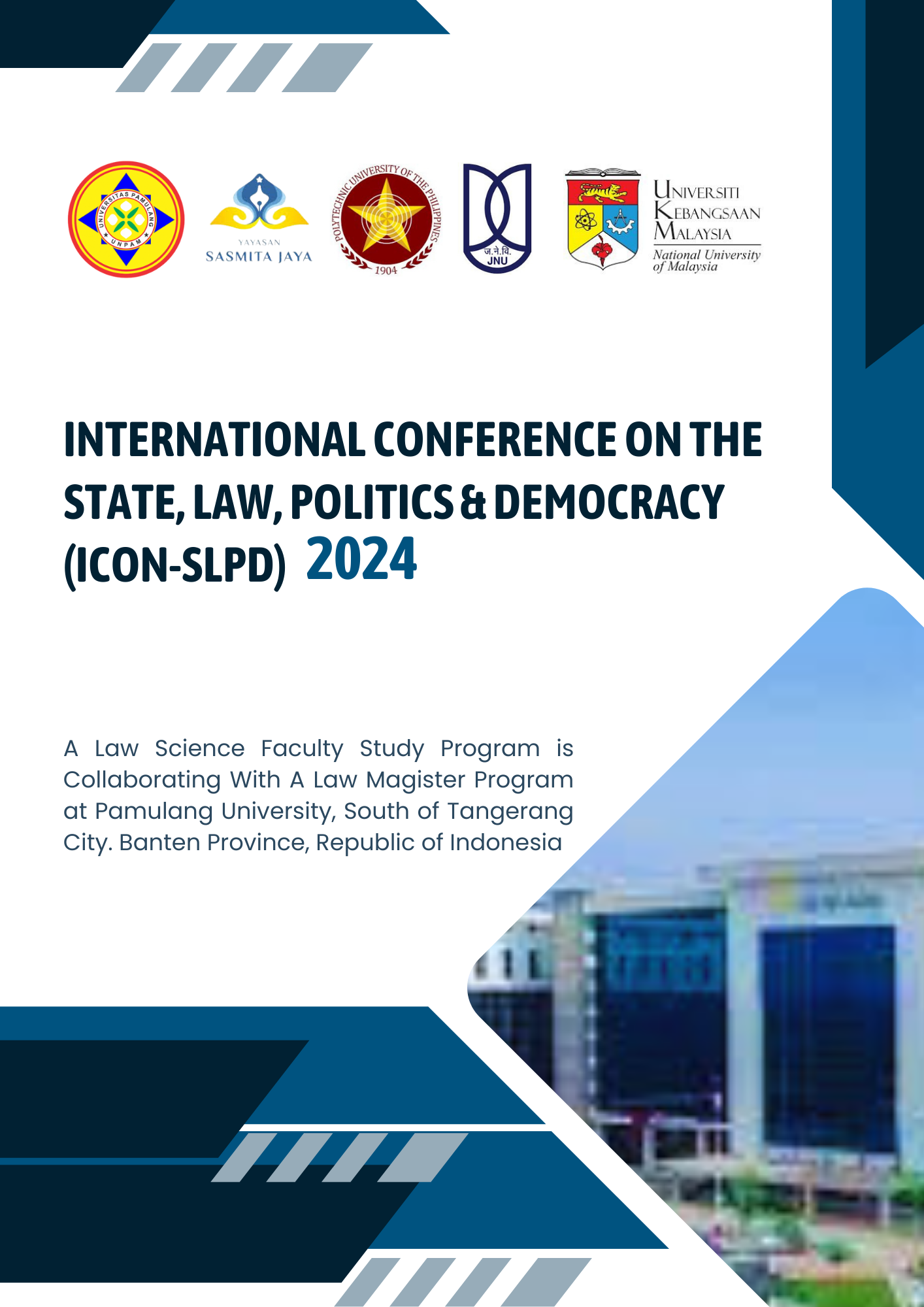The Death Penalty from A Sociological Perspective and Human Rights Enforcement
Keywords:
Death Penalty, Human Rights EnforcementAbstract
The death penalty is one of the most controversial types of punishment globally, with many
opinions supporting and opposing its implementation. Supporters of the death penalty often
base their arguments on conventional reasons, claiming it is necessary to eliminate individuals
deemed dangerous to public or state interests and irredeemable. Opponents argue that the death
penalty violates human rights and is an irreversible form of punishment, especially if errors in
judgment are discovered post-execution
References
Andi Hamzah and Sumangelipu, (1984), Capital Punishment in Indonesia: Past, Present, and Future, Jakarta: Ghalia Indonesia.
Djoko Prakoso and Nurwachid, (1983), Study on Current Views on the Effectiveness of Capital Punishment in Indonesia, Jakarta: Ghalia Indonesia.
J.E. Sahetapy, (1978), A Special Study on the Threat of Capital Punishment for Premeditated Murder, Jakarta: Rajawali Press.
Nata Sukam Bangun, (2014), Scholarly Journal: The Existence of Capital Punishment in the Indonesian Legal System, Yogyakarta: Faculty of Law, Atma Jaya University.
Satjipto Rahardjo, Sociology of the Death Penalty, Written for "Journal Legalitas Indonesia", www.legalitas.org.
Soekanto, Soerjono, (1985), Legal System Effectiveness and the Role of Sanctions, Bandung: Remadja Karya.
Todung Mulya Lubis, (2007), Legal Notes of Todung Mulya Lubis: Why I Love This Country?, Jakarta:
PT. Kompas Media Nusantara. _______________, (2009), Controversy of the Death Penalty:
Differences in Opinion of Constitutional Judges, Jakarta: PT. Kompas Media Nusantara. Waluyadi, (2009), Crime, Courts, and Criminal Law, Bandung: Mandar Maju.





